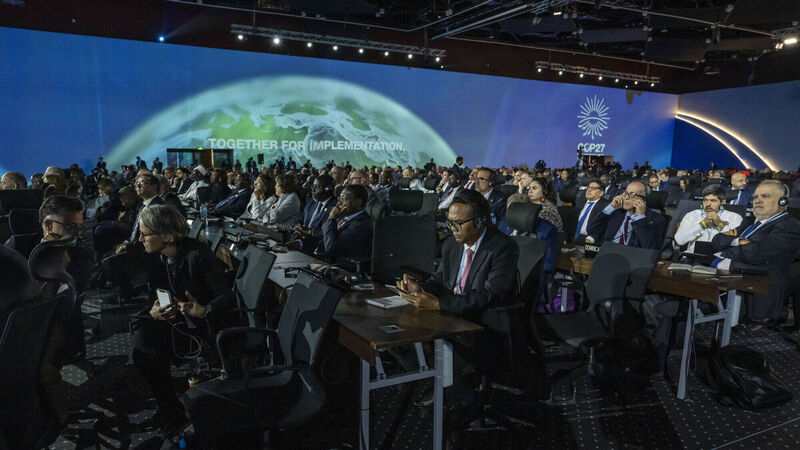Cop27: A hive of activity but the talking needs to be replaced by action

Delegates, party members and observers from across the world have gathered to agree a deal that will hopefully put the world on a pathway compatible with the Paris Agreement. Photo: AP/Nariman El-Mofty
"The longer we take, the more it costs" - those were the words of Finnish Prime Minister, Sanna Marin, as she delivered her national statement to the Cop27 climate summit in Sharm El-Sheikh. They act to focus minds on the need to not only act to combat climate change, but to act quickly.
The impacts of climate change are already apparent. Extreme weather events, such as floods, droughts, and extreme heat are already costing us significant amounts, not only in financial terms, but in lost livelihoods and irreparable damage to delicate ecosystems.
CLIMATE & SUSTAINABILITY HUB
















